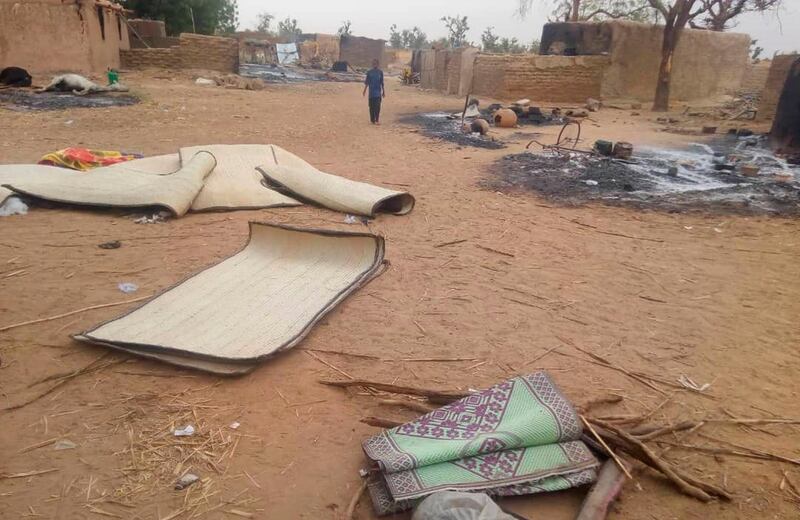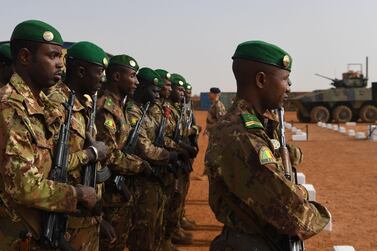Mali's government on Sunday announced that senior military officers were sacked and a militia disbanded a day after the massacre of more than 130 Muslims, including women and children.
Prime Minister Soumeylou Boubeye Maiga said new military chiefs would be named and that the Dan Nan Ambassagou association, composed of Dogon hunters, had been dissolved.
The dissolution of the militia was to send a clear message, Mr Maiga said.
"The protection of the population will remain the monopoly of the state," he said.
Survivors of Saturday's attack said ethnic Dogon hunters carried out the deadly raid in Ogossagou, a village in central Mali inhabited by the Muslim Fulani community.
Mr Maiga did not name the senior officers sacked, but Defence Ministry sources said they were the Armed Forces chief of general staff M'Bemba Moussa Keita, and chiefs of the Army and Air Force.
Hours earlier an emergency meeting was called by President Ibrahim Boubacar Keita in response to Saturday's massacre, in which at least 134 men, women and children were killed.
The victims were shot or hacked to death with machetes, a security source said.
"Malian children are paying a heavy price for the intensification of violence," the UN's children's agency said.
Researcher Baba Dakono of the Institute for Security Studies in Bamako said the attack was unprecedented but predictable because of a weak state presence in the region.
It was the deadliest attack since the end of the January 2013 military intervention led by France, which drove back extremists linked to Al Qaeda who took control of the desert north in early 2012.
Once considered a beacon of democracy and stability in Africa, Mali has in recent years suffered from a coup, civil war and terrorism.
In June 2015, Mali's government signed a peace agreement with some armed groups but the extremists remain active, and large areas of the country remain lawless.
The violence persists despite the presence of UN peacekeepers, a strong French military contingent and a five-nation military force in the region.






